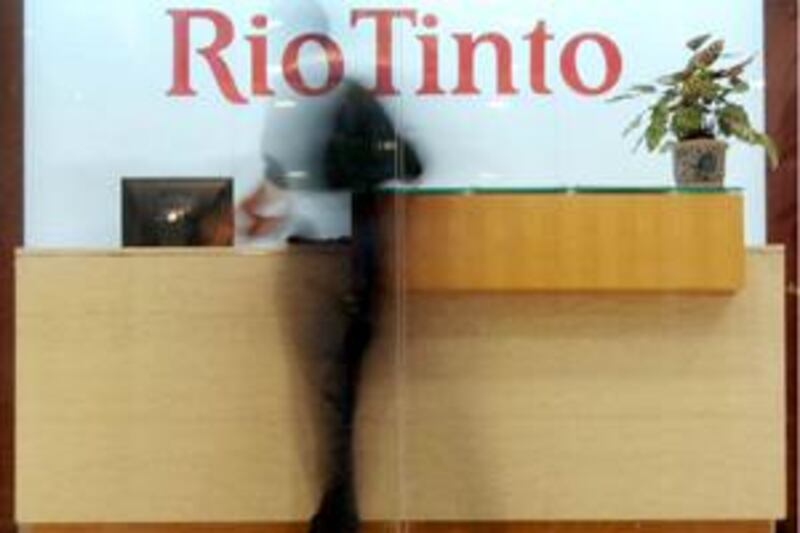US regulators have accused global mining major Rio Tinto and two former executives of fraud for trying to hide the tumbling value of a coal mining investment in Mozambique.
Former chief executive Tom Albanese inflated the value of an ailing mining company to prevent the exposure of a failed business deal that had been intended to restore his reputation as a top-rank deal maker, according to the US Securities & Exchange Commission (SEC).
Mr Albanese, along with the former chief financial officer Guy Elliott, failed to warn the markets of the plunging value of the Mozambique mining company bought in 2011 for US$3.7 billion but which was eventually sold for $50 million three years later, according to documents released by the SEC.
___________
Read more:
[ Rio Tinto reverses loss to post surge into profit ]
___________
The company raised $3bn after presenting a far rosier assessment of the mining operation's prospects than was warranted following a series of setbacks that led to a "rapid and dramatic" decline in its value and revealed the "terrible decision" to make the deal in the first place.
“Rio Tinto and its top executives allegedly failed to come clean about an unsuccessful deal that was made under their watch,” said Steven Peikin, co-director of the SEC’s enforcement division. “They tried to save their own careers at the expense of investors by hiding the truth.”
The company and the two men have denied fraud and the charges of failing to keep proper records and filing misleading reports about the state of the $64bn company’s financial health.
The SEC is seeking financial penalties and wants to bar the two executives from serving as company directors.
"Rio Tinto believes that the SEC case is unwarranted and that, when all the facts are considered by the court, or if necessary by a jury, the SEC's claims will be rejected," the company said.
The company was separately ordered to pay £27m ($36m) by the UK's Financial Conduct Authority over the same investment. The fine is just the latest woe for the London-headquartered miner, which is facing a separate investigation by the Serious Fraud Office over suspected corruption in its operations in Guinea.
The purchase of the coal business in Mozambique in April 2011 was the second large-scale acquisition under the leadership of Mr Albanese. In 2007, Rio Tinto bought aluminium processing company Alcan for about $38bn but that deal swiftly unravelled.
The purchase of the Mozambique operation from Australian miner Riversdale Mining was seen as a shot at redemption following the failure of the Alcan deal which Mr Elliott had described as an “embarrassment” and a “failure”. He understood that further writedowns would reflect a “pattern of evaluation failure or performance failure,” according to the SEC.
The Mozambique deal fell through because of the refusal on environmental grounds by its government to allow mined coal to be moved by barge rather than by more expensive rail routes. Smaller and poorer quality deposits also meant the company was given a negative valuation of $680m just days before Rio Tinto raised the $3bn through a bond offering.
“Their misconduct paid off,” said the SEC charge sheet.
The failure of the Mozambique investment only came to light when an employee bypassed the two executives and went straight to the board with their concerns.
Within weeks, Mr Albanese, a US national, was dismissed in January 2013, with Mr Elliott, a Briton, stepping down as chief financial officer three months later.
The company announced at the same time as Mr Albanese's dismissal that it was taking a $3bn hit on the investment and acknowledged that "a writedown of this scale in relation to the relatively recent Mozambique acquisition is unacceptable".
A year later, the operation was sold for less than two per cent of its original purchase price. One of Rio Tinto's largest investors said at the time that the company's management had been "reckless and profligate".







